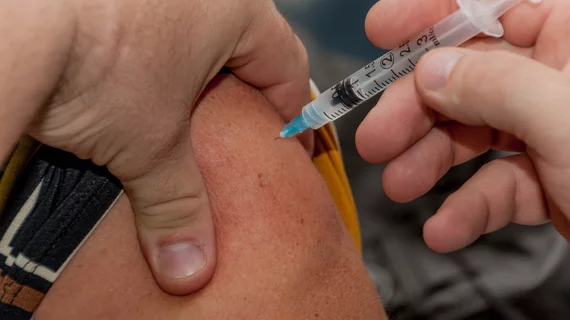The forthcoming COVID-19 vaccines are going to make recipients feel lousy for a few days and then repeat the routine three to four weeks later.
Will the public be braced enough for the expected side effects of shot No. 1—headaches, fever, injection-site pain—that they’ll follow through with the essential second round?
They’d better be, one of the country’s top vaccinologists warns, or the inoculation program could stall out in its early phases.
“We need to communicate, and we need to communicate effectively, and we need to start planning for this now,” Saad Omer, MBBS, MPH, PhD, of Yale tells Kaiser in a news report picked up by NBC News.
Noting that some consider Omer a candidate for President-elect Joe Biden’s healthcare team, Kaiser quotes him recommending public health experts position the negative side-effects of the initial injection as a good thing.
“There’s evidence suggesting that, if you frame pain as a proxy of effectiveness, it’s helpful,” Omer says. “If it’s hurting a little, it’s working.”
Other experts seem to be bracing for possible patient noncompliance at scale.
“We are asking people to take a vaccine that is going to hurt,” says William Schaffer, MD, of Vanderbilt. “There are [going to be] lots of sore arms and substantial numbers of people who feel crummy … for a day or two.”
Given human nature, motivating people to come back for another dose of discomforts “could be a tough sell,” Schaffner warns.
A third expert, vaccinologist Paul Offit, MD, of the University of Pennsylvania, suggests letting preparatory patient communications take their cue from the full vaccine trial reports.
Pfizer is said to be very close, after all, and other pharma companies in the running may not be far behind.
“When you look at those data, you can more accurately define what groups of people are most likely to have side effects, what the efficacy is, what we know about how long the efficacy lasts, what we know about how long the safety data have been tested,” Offit tells Kaiser. “I think you have to get ready to communicate that. You can start getting ready now.”

